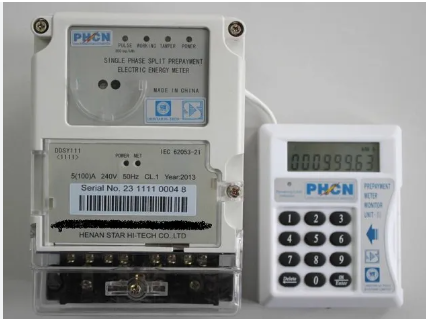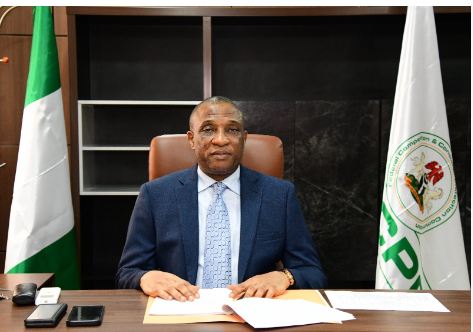By Jemimah Wellington, JKNewsMedia Reporter
The Federal Competition and Consumer Protection Commission (FCCPC) announced it has launched a multifaceted intervention against exploitative practices in Nigeria’s marketplace.
He said it reveals widespread manipulation of food prices, unclear procedures around prepaid meter replacements, and troubling service disruptions in online banking.
Addressing these critical consumer issues, FCCPC’s Executive Vice Chairman, Tunji Bello, disclosed the aggressive steps the agency is taking to hold responsible parties accountable, safeguard consumer rights, and ensure fair access to essential goods and services across Nigeria.
During a recent engagement in Uyo, Akwa Ibom State, Bello unveiled the FCCPC’s findings on pricing exploitation in Nigeria’s poultry industry, a sector facing unprecedented pressure from influential players accused of price-fixing.
According to him, smaller poultry producers previously thrived, able to sell day-old chicks for N480 to N590, achieving steady profits and market stability.
But with the entrance of two dominant players, prices have soared, and small producers struggle to compete, their margins squeezed by what Bello described as “mafia-like” practices in the industry. He noted that these players allegedly maintain a coordinated pricing approach, blocking negotiation attempts and discouraging competition.
“If a small producer tries to negotiate with one of these companies, they inform the others to maintain uniform pricing,” Bello explained, refusing to name the alleged cartel operators.
Unistar Prepaid Meters Concerns
Furthermore, the FCCPC has responded to mounting consumer concerns about the phase-out of Unistar prepaid meters by Ikeja Electric Plc and other electricity distribution companies (DisCos).

Bello said consumers across Nigeria had voiced their worries over potential costs associated with meter replacements and a possible shift to estimated billing, which could violate existing consumer protection standards.
Ikeja Electric recently announced that Unistar prepaid meters, introduced over ten years ago, would no longer be supported starting November 14, 2024, citing the Token Identifier (TID) rollover issue and required technological upgrades as the reasons for the phase-out.
Bello emphasized that the FCCPC is actively working with the Nigerian Electricity Regulatory Commission (NERC), the Nigerian Electricity Management Services Agency (NEMSA), and the eleven DisCos to bring transparency to the metering process, addressing the potential impact on consumers.
He clarified that the FCCPC’s goal is to ensure that DisCos bear the cost of any necessary meter replacements, without passing this burden onto consumers, who risk unfair billing practices during the transition.
Disruptions in Online Banking Services
Similarly, the FCCPC has turned its attention to the ongoing disruptions in online banking services affecting millions of Nigerian consumers.
According to Bello, recent banking failures have left countless Nigerians unable to access their funds or complete essential transactions, impacting both personal finances and business operations.
The FCCPC noted that under the Federal Competition and Consumer Protection Act (FCCPA) 2018, banks are mandated to provide quality service and ensure reliability in their operations.
Bello stressed that consistent disruptions not only inconvenience customers but may constitute a violation of these standards, as consumers have a right to access and use financial services reliably.
“When banks fail to maintain adequate access to essential financial services, it results in significant financial hardship and erodes public trust in the banking system,” Bello said, highlighting the larger economic implications.
“The FCCPA further grants consumers the right to reasonable access to goods and services—a right compromised when technical failures prevent access to personal funds. In a largely cashless economy, online banking is no longer a convenience; it’s a necessity,” he added.
He also criticized the lack of transparent communication from financial institutions, noting that during these disruptions, many banks failed to inform customers about the cause, scope, and expected duration of service issues.
“Consumers are left in the dark, adding to frustration and leaving customers feeling unsupported,” Bello stated.
He further explained that under the FCCPA, consumers are entitled to seek redress for substandard services, and that the FCCPC is investigating these service failures to determine the appropriate level of accountability for the affected financial institutions.
As part of its effort to protect consumer rights and ensure compliance with statutory mandates, the FCCPC is collaborating with relevant regulatory authorities, including financial regulators, to address ongoing service disruptions and restore public confidence in the banking system.
Bello assured the public that the FCCPC is dedicated to resolving these issues swiftly, encouraging consumers to report grievances through FCCPC’s official channels, including its website and email.
“This comprehensive intervention underscores our commitment to protecting Nigerian consumers’ rights, ensuring fair treatment, and holding service providers accountable,” Bello affirmed. He added that the FCCPC’s actions align with President Bola Tinubu’s “Renewed Hope” agenda, which aims to secure equitable and reliable access to essential services across Nigeria.





